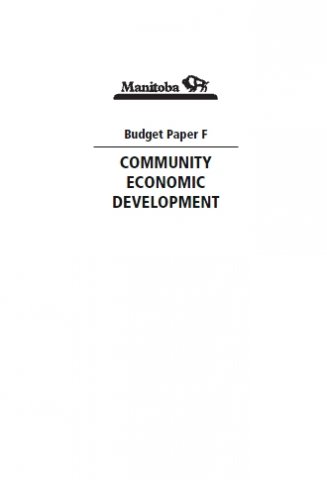Community economic development (CED) takes the well-being and prosperity of local neighbourhoods beyond the traditional economic measures that are usually associated with strong communities. Creative ideas, dedicated efforts and innovative partnerships between community residents and organizations, CED practitioners, businesses, researchers, educators, and government drive the successes of community economic development all around Manitoba. Developing and implementing community-driven ideas provides economic, social and environmental dividends that benefit neighbourhoods and entire communities.
Since 1999, the Manitoba government has supported CED efforts in communities by:
- engaging with communities about their needs and priorities;
- funding CED organizations to engage communities from the ground up;
- establishingmajornewCEDprograms,suchasNeighbourhoodsAlive!,theCommunityEnterprise Tax Credit, Hometown Manitoba and the Winnipeg Housing and Homelessness Initiative;
- buildingnewopportunitiesinemergingCEDsectorssuchaswindpower,biofuelsandeco-tourism; and
- supporting initiatives to build safe, healthy and vibrant communities as a cornerstone of CED.
Community economic development is one way for the provincial government to achieve the social, economic and environmental goals Manitobans have identified as important. It empowers communities to lead their own revitalization strategies, creating stronger, healthier and more resilient communities and local economies. The province is committed to supporting communities to develop and implement CED strategies that are based on community ideas and community resources. The provincial commitment to CED as part of an effective economic strategy reflects a belief in more equitable, sustainable and diversified development, for the benefit of all Manitobans.
Contents
- Building for the Future
- Education, Training and Enterprise Development
- CED on the Leading Edge
- At Home in our Communities

